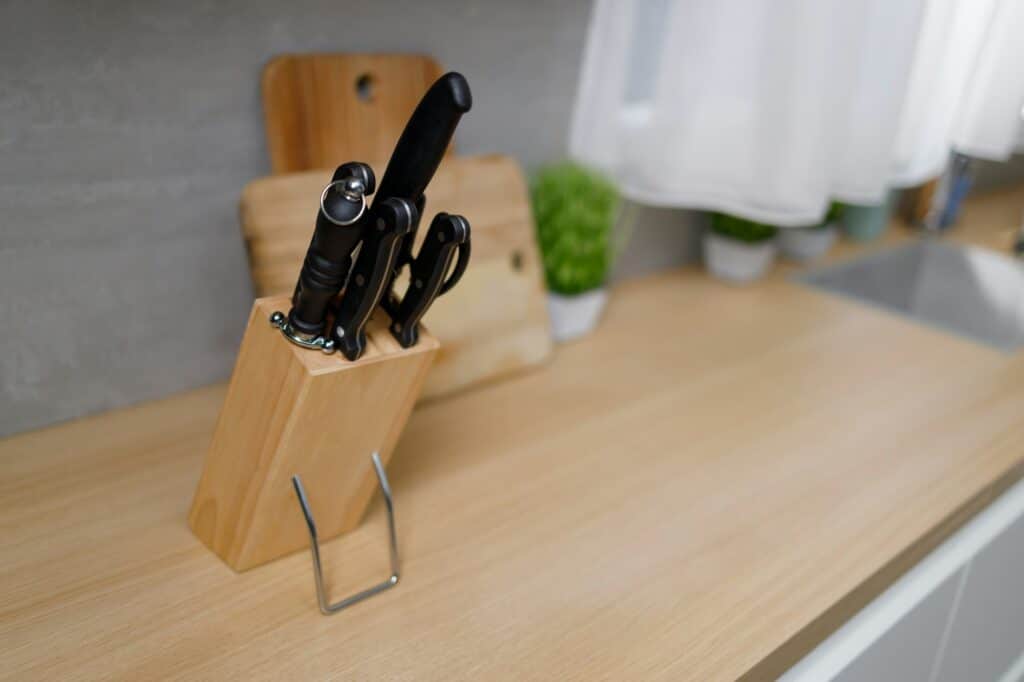
Butcher block countertops have surged in popularity in recent years, offering a unique blend of rustic charm and practicality to kitchens. However, before making a decision, it’s essential to understand the pros and cons of this countertop option. In this article, we’ll explore the advantages and disadvantages of butcher block countertops to help you determine if they’re the right choice for your kitchen.
Pros of Butcher Block Countertops:
Natural Aesthetic Appeal: Butcher block countertops add warmth and character to any kitchen with their natural wood grain and warm hues. They bring a touch of rustic elegance that complements various design styles, from traditional to modern.
Durability: Despite being wood, properly sealed butcher block countertops are surprisingly durable and can withstand daily wear and tear. They are resistant to scratches, dents, and heat, making them suitable for food preparation and cooking areas.
Versatility: Butcher block countertops are highly versatile and can be customized to fit any kitchen layout or design preference. They come in various wood species, thicknesses, and finishes, allowing homeowners to create a unique look that suits their style.
Easy Maintenance: With regular oiling and sealing, butcher block countertops are relatively easy to maintain. Minor scratches or blemishes can be sanded out, and the surface can be resealed to restore its beauty. Routine cleaning with mild soap and water keeps them looking their best.
Eco-Friendly Option: Unlike synthetic materials, butcher block countertops are made from renewable resources, making them an eco-friendly choice for environmentally conscious homeowners. They can be recycled or repurposed at the end of their lifespan, reducing their environmental impact.
Cons of Butcher Block Countertops:
Susceptibility to Water Damage: Despite their durability, butcher block countertops are prone to water damage if not properly maintained. Exposure to standing water or excessive moisture can cause warping, cracking, and mold growth, requiring regular sealing and upkeep.
Prone to Scratches and Stains: While butcher block countertops can be sanded to remove scratches, they are susceptible to knife marks, stains, and other surface damage. Care must be taken to use cutting boards and avoid placing hot pots directly on the surface to prevent damage.
Requires Regular Maintenance: To preserve their beauty and longevity, butcher block countertops need regular maintenance, including oiling and sealing every few months. Failure to maintain them properly can lead to deterioration and a shorter lifespan.
Limited Resale Value: While butcher block countertops are popular among homeowners, they may not appeal to all potential buyers when it comes time to sell your home. Some buyers may prefer more low-maintenance options or materials perceived as higher-end, which could affect resale value.
Initial Cost: Compared to laminate or tile countertops, butcher block countertops can be more expensive to install initially. The cost varies depending on the type of wood, thickness, and customization options chosen, making them a significant investment for some homeowners.
